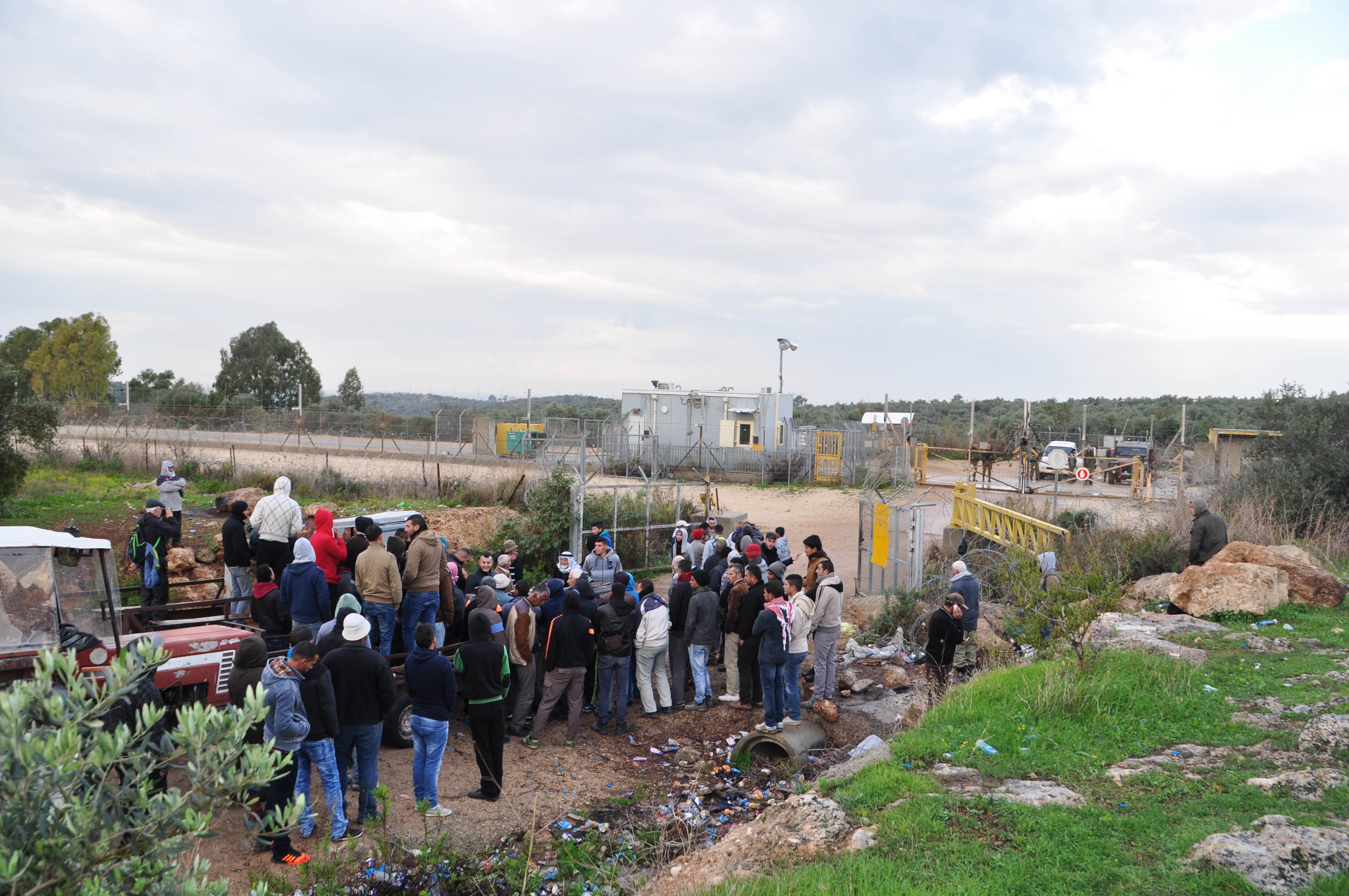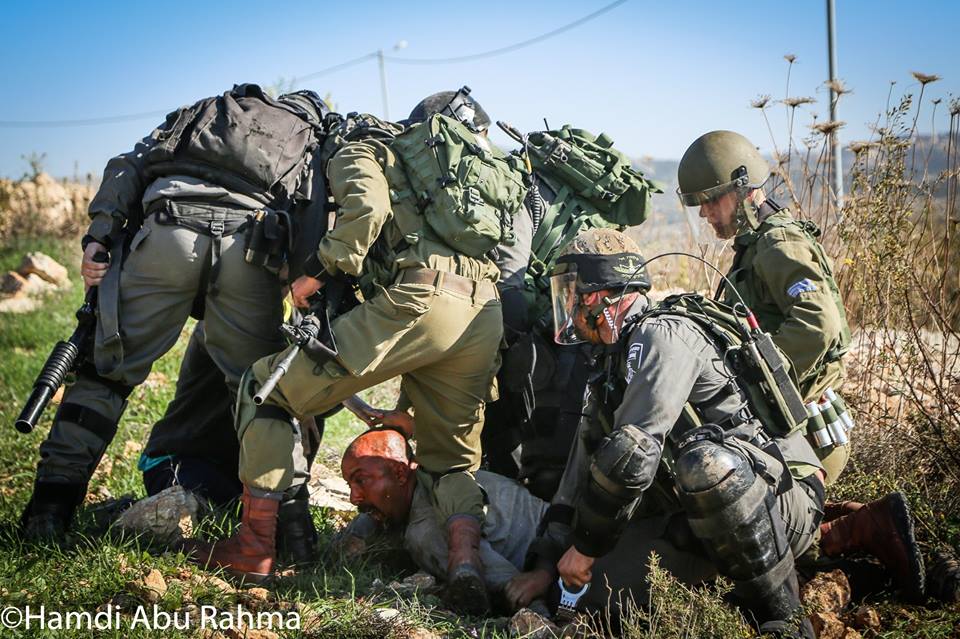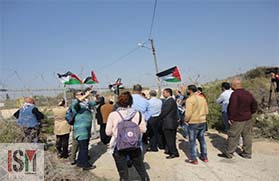Tag: Apartheid Wall
-
Farmers protest closure of gate blocking them from accessing their land
18th of December, 2015 | International Solidarity Movement, Tulkarm team | Deir al Ghsoon, occupied Palestine Hundreds of farmers protested on the morning of the 18th of December against the closure of an agricultural gate, which led Israeli commanders to agree to reopen the way. In 2002, 3200 dunumns of farmland got cut of from the…
-
Internationals and Palestinian arrested in Bil’in demonstration
13th November 2015 | International Solidarity Movement, Nablus team | Nablus, occupied Palestine Update: 15th November 2015 | International Solidarity Movement, Nablus Team | Nablus, occupied Palestine Four human rights defenders arrested in Bil’in on 13th November when peacefully observing a demonstration against the apartheid wall have been let out on bail. All were held…
-
Violent military attack on peaceful demonstration in Tulkarm
4th November 2015 | International Solidarity Movement, Huwarra team | Tulkarm, occupied Palestine On November 3rd, two demonstrations took place in Tulkarm. In the city center, children gathered to protest against the incarceration of their loved ones in so-called “administrative detention”, where they’re held without trial for indefinite periods. The children were singing and chanting…



